ESMO Immuno-Oncology Congress 2022

Preliminary activity is reported with an anti-IL-8 monoclonal antibody plus nivolumab in melanoma
Combination therapy with BMS-986253 shows promise in patients progressing on checkpoint inhibitors
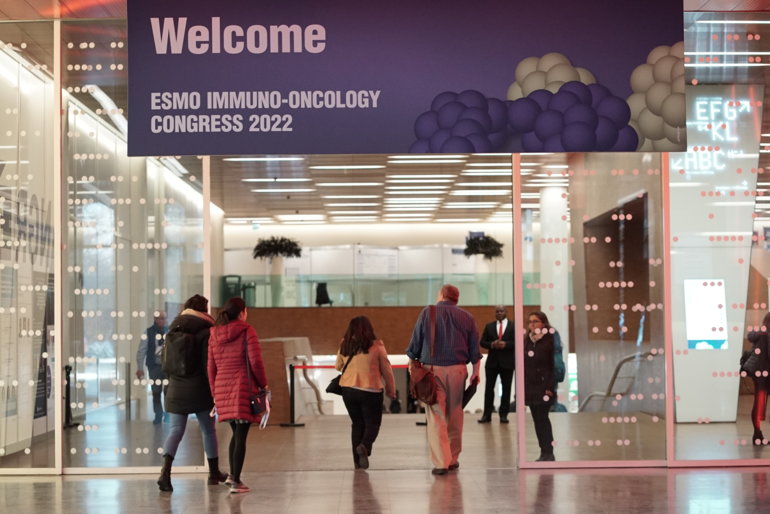
Combined biomarker analysis shows promise as a tissue agnostic response predictor for immunotherapy-based treatment
Pre-treatment expression of Ki-67 plus FOXC1 plus PD-L1 predicted response to neoadjuvant treatment in breast and head and neck tumours, although more work is required to determine its use in the context of immunotherapy alone
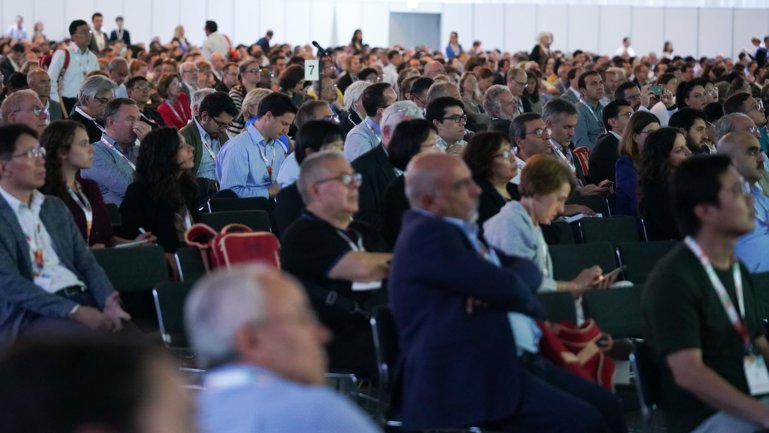
Two studies explore new predictive biomarkers for immunotherapy in NSCLC
Different methods – multiparametric biomarker assessment and FDG-PET – show mixed accuracy and their applicability in clinical practice needs to be assessed
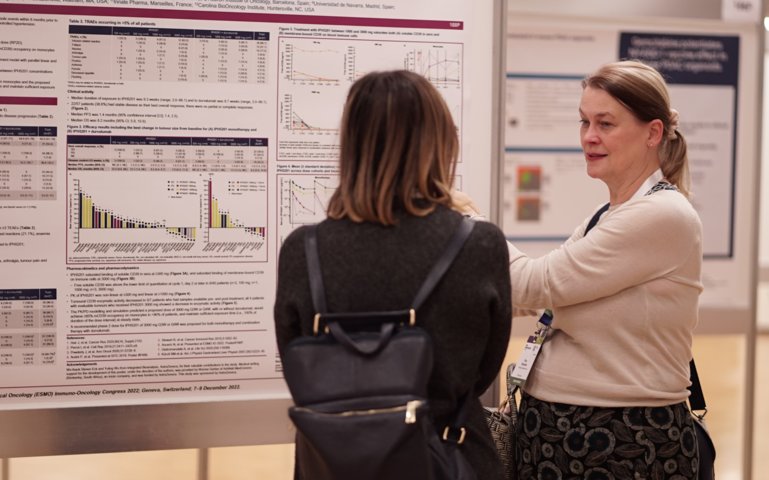
Do immune checkpoint inhibitors affect COVID-19 severity?
A joint analysis of the OnCovid and ESMO-CoCARE registries confirms the protective role of anti-SARS-CoV-2 vaccination in cancer patients treated with immunotherapy
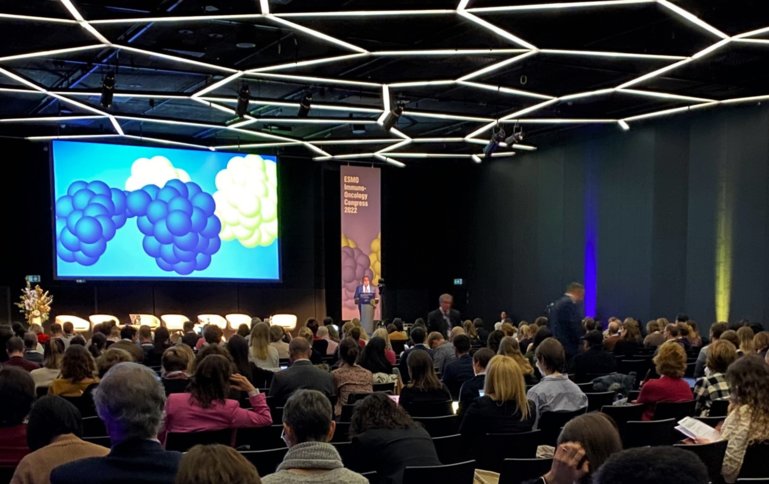
Positive preliminary results for combination therapy with adagrasib in KRAS G12C-mutated NSCLC
Phase III trials are planned to assess combined KRAS G12C inhibition/checkpoint inhibition as first-line therapy
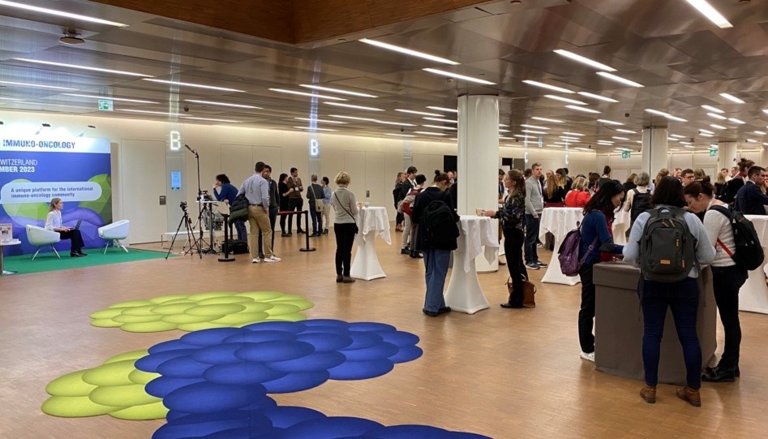
Neoadjuvant anti-PD-L1/TGFβRII fusion protein facilitates surgery in unresectable NSCLC
Phase II study indicates that SHR-1701 alone or together with chemotherapy may be a valuable induction strategy in stage III unresectable NSCLC
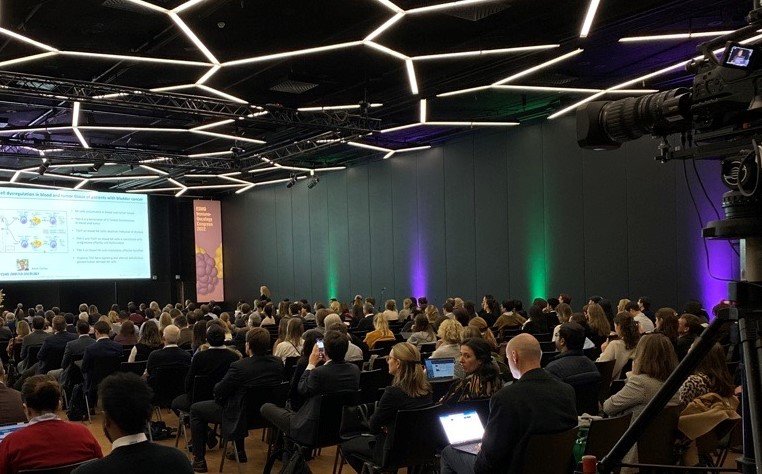
Neoadjuvant camrelizumab plus chemotherapy improves pathologic complete response in stage IIIA and B NSCLC
Positive results from a phase II trial adds weight to the value of immunotherapy as neoadjuvant treatment for resectable NSCLC
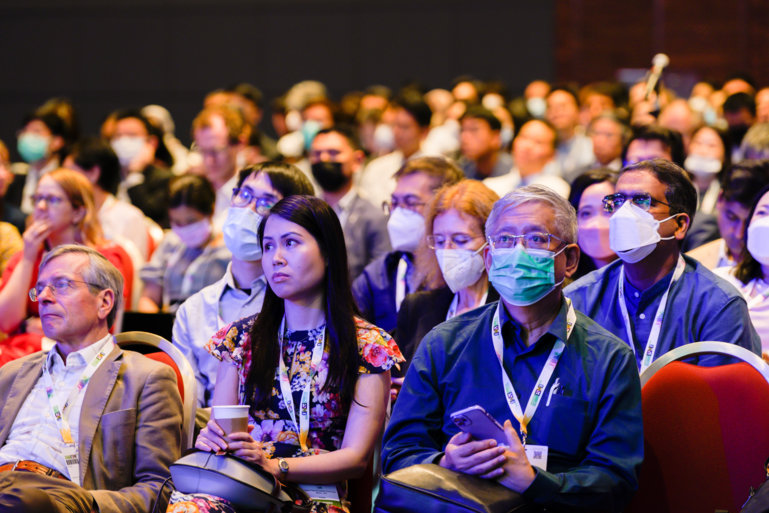
Exploratory analysis of IMpower010 confirms that ctDNA is prognostic for adjuvant atezolizumab in NSCLC
However, improved outcomes are reported in PD-L1-positive patients only irrespective of post-operative and post-chemotherapy ctDNA status, calling into question its predictive value

Back to basics: do we need more immuno-oncology in the core curriculum?
Due to the current widespread use of immunotherapies and their increasing complexities, further immune-oncology education is needed in medical schools and beyond

Is there still a future for cancer vaccines?
Despite generally disappointing clinical trial results, technological innovations mean that realising the potential for cancer vaccines could be just around the corner


